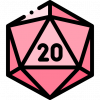


Welcome! You may have just started out on Hollowworld, or you are a returning player.
You may have noticed in the first few days in Altera a system that we use to help elevate Roleplay, enhance character development, and have a useful effect for events.
What is it? It is our stats system!
It is a method to help represent a character’s developed skills over the course of their life.
It is not a perfect representation but it is a step to providing an accurate estimation of a character’s strengths and weaknesses.
So, where do we begin?
The first thing is to create yourself a character card in-game. This card lets people know about who your character is, and begins the journey of setting skills and stats for yourself.
This is your character card.
This is what other players see when they roleplay with you!
To get your card setup properly (description, race, height and weight), head to this thread {HERE} for the list of all the commands needed.
Once you have your card setup and active, you can now begin gaining EXP through Roleplay to grow your character and their abilities and skills!

So, what do we do when we get that EXP?
We spend it! Quite literally, your EXP is spent in leveling up different stats and abilities.
There are three unique categories that you can spend on:
- Attributes -
These are broad traits that encompass a general aspect of a character. Every roll made will use one of these attributes as a base depending on which is most appropriate to the situation. Each point in an attribute adds +1 to a roll. There are three Attributes:
Body: A character’s general physicality. Specific traits such as strength or swiftness are individual skills, this can be considered more as general athleticism.
Mind: A measure of a character’s mental acuity and skills learned through academic study. This generally governs skills that apply what you know.
Soul: A measure of ‘force of character’ and general ability to influence others and resist such influences themselves.
- Skills -
These are specific skills that represent ability in that particular area. Each point of skill adds +1 to a roll. Skills cap at 5, outside circumstances like race and passive bonuses. The skills here are listed with what attribute they generally utilize, but they aren’t bound to any.
- Awareness (Mind): A character's sense of area around them, and ability to notice subtle details in the environment.
- Ranged (Body): Skill with projectiles, such as bows and thrown weaponry.
- Handling (Soul): Skill in controlling animals and vehicles, such as a horse or ship.
- Resilience (Any): A character's general toughness and ability to withstand adversity.
- Medicine (Mind): Knowledge of mundane healing and how to apply it.
- Athletics (Body): A character's ability to apply their physicality to general tasks, such as climbing or lifting something heavy.
- Dexterity (Body): A character's ability to perform graceful actions, such as dodging or catching a thrown item.
- Deception (Body): A character's affinity for moving unseen and getting to places they shouldn't be.
- Unarmed (Body): Familiarity with fighting unarmed, both striking and wrestling.
- Melee (Body): Familiarity with melee weaponry, and skill with their use.
- Charisma (Soul): A character's Ability to make friends and influence people.
- Lore (Mind): A character's familiarity with scholarly pursuits, and likelihood of having some specific knowledge about the world.
- Crafting (Mind): A character's knack for learning crafting skills and making things on the fly.
- Focus -
Focus is a further specialization in a particular skill, represented through a 1d4 addition to relevant rolls.
Awareness
- Passive: How likely a character is to notice details in their environment without actively looking for them.
- Investigation: How likely a character is to find specific details about something they're inspecting.
- Insight: Intuition in identifying something that has hidden motives.
- Tracking: Ability to identify tracks and follow them to their source.
Ranged
- Bows: Affinity for bows, crossbows and similar ranged weaponry.
- Thrown: Affinity for javelins, throwing knives, and similar ranged weaponry.
- Arcane: Affinity for aiming ranged spells.
Handling
- Vehicles: Affinity for piloting vehicles.
- Animals: Affinity for calming, riding, and managing animals.
- Summons: Affinity for directing summoned creatures.
Resilience
- Mental: Mental toughness and affinity for enduring psychological conditions.
- Endurance: Physical toughness and ability to push on through long periods of physical exertion.
- Malaise: Inherent ability to resist conditions such as poison, disease, and similar effects of an environmental or magical nature.
Medicine
- Healing: A character's affinity for the healing arts.
- Anatomy: A character's academic familiarity with anatomy, human and otherwise.
Athletics
- Might: A character's affinity for acts of raw strength.
- Climbing: A character's affinity for climbing things.
Dexterity
- Evasion: A character's affinity for dodging incoming attacks.
- Speed: A measure of a character's sprinting speed over short distances.
- Reflex: A character's general reflex speed, for actions like catching a thrown object.
Deception
- Stealth: A character's ability to move and hide without being detected.
- Disguise: A character's ability to conceal their true identity.
- Thievery: A character's affinity for lockpicking, pickpocketing, and similar deeds of ill repute.
Unarmed
- Striking: A character's affinity for punching, kicking, and the like.
- Grappling: A character's affinity for wrestling, grappling, and the like.
Melee
- Blades: Affinity for bladed weapons, such as swords and daggers.
- Polearms: Affinity for polearms, such as spears and halberds.
- Short Weapons: Affinity for singlehanded weapons, such as maces and axes.
- Shields: Affinity for using shields and blocking.
Charisma
- Persuasion: A character's ability to convince others to see things their way.
- Intimidation: A character's ability to frighten others by their presence.
- Guile: A character's ability to convince others that a lie is the truth.
Lore
- History: Specialized familiarity with history and events of the past.
- Nature: Specialized familiarity with academic details about wild animals and the wilderness.
- Arcana: Specialized familiarity with the esoteric, including magic and magical phenomena.
Crafting
- Engineering: Affinity for designing something to build to address a specific problem.
- Repair: Affinity for applying a quick repair to get something working again.
Skills, Focus and Attributes are bought using experience, which is earned passively by RPing.
You start off with 60 EXP at character creation.
You can then earn up to 1 EXP per 30 minutes of RPing, to a maximum total of 20 EXP per month.
Additionally, some Sorrows mobs show up with a nameplate and special attacks. They have a mix of vanilla and custom loot drops. Killing around 20 of these named mobs grants 1 EXP. Characters cap at 240 EXP.
How do I spend my points?
To begin, use /menu to see your main menu on the stats system.
From left to right, there is “Character List”, “Character Sheet”, “Level Up”, “Roll”, and “Mailbox.”
Character List opens up the list of all character cards that you have on your account, and allows you to switch between them.
Each account can have a total of five separate character cards represented on it, to showcase alt or side characters.
Character Sheet allows you to view your current active character, and their skills, attributes, and focuses.
Level Up opens up your window to specifically spend your XP points in certain areas. The following image shows each, and how to level them up:
The Red circles represent your Attributes - Body, Mind, and Soul. The Green circles represent your skills. The Blue circles represent your focus. To level up any of these areas, simply click on one to spend a point on it. To save, simply click compass to save your points. The Yellow circle takes you to the next page, with more skills and focus.
We know this can feel a little overwhelming, so we put together a Stat Calculator so you can begin planning out your character and their stats! You can find a link to this {Here}!
With all that, now the next question is… how do we apply these skills in RP?
Skills and RP
Skills in RP are a great way to enhance the overall experience for players, events, and DMs! We will break down two different scenarios in which one may use your skills to “roll”.
You are in a combat based RP with a friend - you both are fighting differently with great emotes, but want to see who the winner would be for each specific move. This is a situation where one would use the skills system to determine a roll.
You are in a Staff or Player Led Event, and the DM has asked you to roll for a specific scenario - for example, moving out of the way of a fireball heading towards you. This is a situation you would roll for.
However, not all rolls are combat oriented. Some are for medical scenarios, discovering things in an event, captaining a ship, and more! Most of the rolls are determined by the DM of the scenario, or agreed upon by the people RPing together.
Here are some core principles to remember when rolling:
- Rolls do not dictate how a player character thinks, feels, or reacts to something. These are for use in CRP, events, and situations generally outside the realm of normal interaction.
- Skills should feel rarely reliable in how they reflect character ability.
- The outcome of rolls still fall within the realm of what’s plausible, and remain contingent on what’s being emoted. A high roll doesn’t allow a sword to cut through a breastplate, and RP should remain the focus with rolls as a tool to ease the decision of outcomes.
So, how does rolling work with skills?
A great question! In our set of rolling, we have a d20 dice system (like DnD).
You roll by using the command /roll followed by the appropriate attribute, then skill, as seen below:
The modifier you have for a specific roll is determined by the amount of points you have in a certain Skill and Attribute.
Every point you add to a skill or attribute adds another +1 onto your roll. You can buy a maximum of +10 by maxing out your skills.
Where does focus come into play? When rolling, there may be a scenario in which your character specializes.
We know this may seem confusing, but the big things to remember are:
- The amount of points you have in a specific skill or attribute dictates how many dice you have when rolling for that skill and attribute.
- Focus is used for a specialization in different scenarios.
Those are the general basics to our Stats System here on HW, for any questions please feel free
to ask in our Discord, or take a look at the in-depth threats in the Stats Section posted {Here}
Happy rolling!
to ask in our Discord, or take a look at the in-depth threats in the Stats Section posted {Here}
Happy rolling!
Last edited by a moderator:




